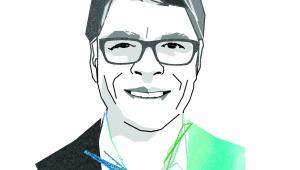26 April 2002
Money will follow the patient. Trusts will be paid on results. Hospitals that treat more patients will receive more money. GP-led commissioning bodies will be able to scrap deals with local NHS care providers and send patients to other providers, including the voluntary and private sectors.
Before the fine detail of the latest shake-up of the NHS financial regime is unveiled, it looks as if Labour has taken the health service back to an earlier time. The reforms appear to add up to the internal market writ large.
Following last week's £40bn Budget boost for the NHS, Health Secretary Alan Milburn published a series of reforms designed to make the service more patient-oriented. In Delivering the NHS Plan, he announced that waiting times would be driven down to a maximum of three months by 2008.
After five years of encouraging NHS trusts to collaborate, he will reintroduce competition. But, unlike the market reforms of the early 1990s, the competition will not be on the cost of treatment – prices will be fixed in each region – but on the ability to treat patients quickly and to a high standard.
Each trust will agree to treat a minimum number of patients. Those that do not reach this annual target will have the price of each procedure they do not perform taken from them. Those that take on more will be reimbursed accordingly. Patients will also be able to choose where they are treated.
These incentives will be matched with extra capacity: 15,000 more GPs and consultants; 30,000 more therapists and scientists; and 35,000 more nurses, midwives and health visitors by 2008. There will be at least 10,000 more general and acute beds and 42 new hospitals.
The service is entering a new era, said NHS Confederation chief executive Dr Gill Morgan. 'These incentives and freedoms will be an important cultural step from pushing the NHS to change through targets to pulling the NHS to change through incentives,' he added.
The proposals were also welcomed by British Medical Association chair Ian Bogle. But he added: 'We must avoid any hospital cherry-picking patients who can be treated quickly and simply to the disadvantage of patients with complex, chronic or intractable health problems.'
Healthcare Financial Management Association chair John Flook said the service must turn the additional funding into extra capacity. 'Unless there is a radical change in the system of establishing and funding medical education, we will not produce the number of doctors needed to deliver the NHS Plan.'
Despite the huge increases in spending – around £7bn a year for the next five years – much of the new cash will be tied to specific programmes. A greater proportion of spending will be used to fund training and capital developments in order to increase NHS capacity.
The 80,000 extra staff will add millions to the health service pay bill, while 'Agenda for change', the restructuring of NHS staff pay spines due to be introduced next year, could cost an additional £3bn over five years, according to the Royal College of Nursing.
The unions want a greater share of the chancellor's billions for their members. At the RCN annual conference in Harrogate this week, its general secretary Beverley Malone said this month's 3.6% pay rise was not enough to make nurses feel appreciated.
The amount of cash flowing into the NHS over the next five years may be phenomenal, but inflationary pressures mean the required delivery is still in question.
Pay increases and the ever-rising drugs bill, plus tough national targets on waiting lists, patient choice and recruitment, not to mention rising public expectation, leave the service with little margin for error.
Delivering the NHS Plan – main points
PFapr2002



















